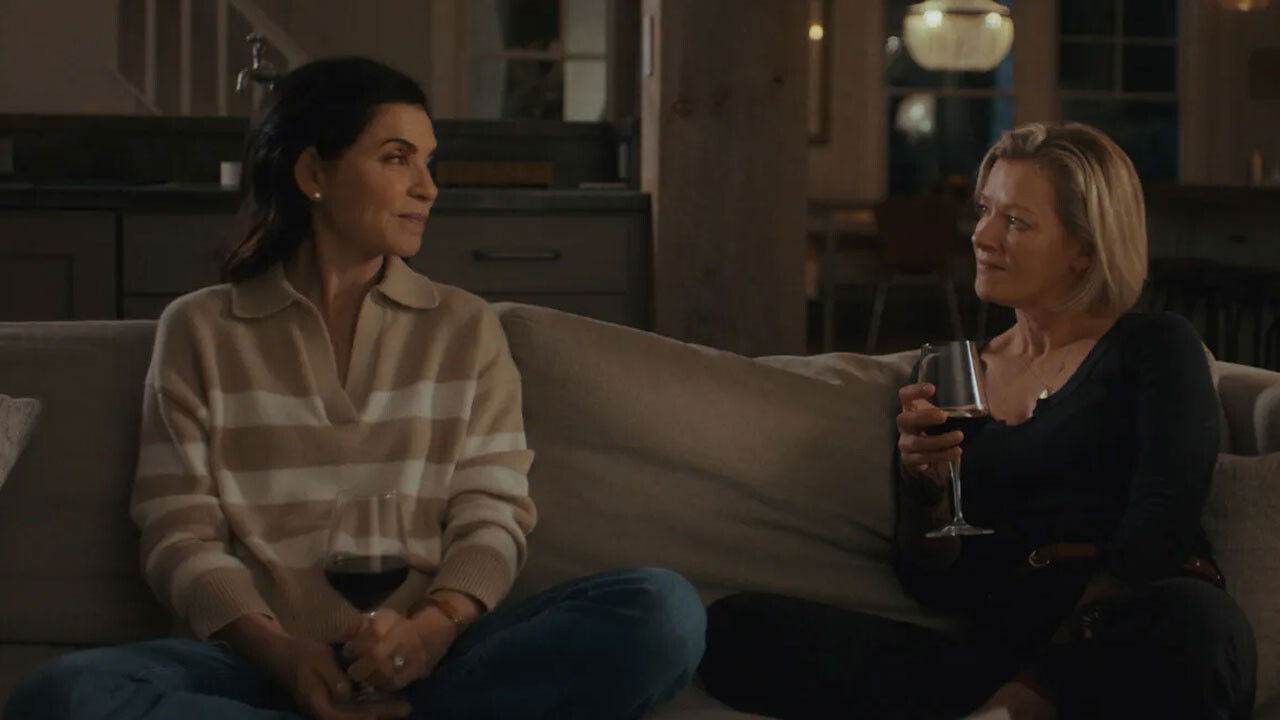I was lucky enough to work the red carpet for Millers in Marriage at TIFF 2024, and the general consensus among the cast and director/writer/actor Edward Burns was that they had seen generational films reflecting their lives in their teens and twenties, but now, as they’ve reached “a certain age,” no one is telling their stories. As I approach middle age myself, just a step before the stage depicted in the film, I can resonate with that sentiment. Burns captured this feeling well, but I think he could have delved a little deeper into the siblings’ experiences.
Millers in Marriage is a story that doesn’t get told often. What happens when you reach your 40s, 50s and more, and life hasn’t turned out quite the way you thought it would? What happens when the kids are moved out, careers have slowed down and sparks have plateaued? We often talk about everyone’s firsts, but not often what happens in the later stages in life.
Edward Burns brought together a film about three siblings (the Millers) and their marriages. Eve (Gretchen Mol) is a recent empty-nester and former musician, married to Scott (Patrick Wilson), an alcoholic she met young, and now is gaining the attention of a handsome music writer (Benjamin Bratt). Maggie (Julianna Margulies) is the big sister and an accomplished fiction writer, married to Nick (Campbell Scott) who is a writer that isn’t writing. And then we have Andy (Edward Burns) who is an artist, separated from the “messy” Tina (Morena Baccarin), and newly dating Renee (Minnie Driver). Millers in Marriage is incredibly character driven and each role seems to be perfectly cast.

These are three very different couples leading completely opposite lives, yet Millers in Marriage shows how similar we can all be in our struggles. Each relationship faces different stressors: Eve gave up her dreams, the kids are gone, and Scott has a drinking problem. Maggie has lost the spark with Nick, and there’s a power struggle due to Maggie’s success. Andy and Tina have separated, and he struggles to set boundaries so he and Renée have a chance. Burns successfully brings these three different lives together through their shared struggles, offering an intriguing perspective when viewed from the outside.
“Millers in Marriage is incredibly character driven and each role seems to be perfectly cast.”
The script is quick and witty. Patrick Wilson’s Scott is a bit over-the-top, but I think that is what they wanted. A drunk is never what the media portrays them as, and I would have loved to see this done a little more subtlety. Benjamin Bratt’s character is as dreamy as he always is. Something about the swagger that man has in this role would charm any woman, and he was perfectly cast here. However, like Wilson’s Scott says, that hat is stupid.
The supporting cast in Millers in Marriage, including Morena Baccarin, Minnie Driver, and Campbell Scott, are given the best material. The three bring charisma and deliver the best jokes, with both women exuding confidence, making them likeable, funny, and a bit charming. This even applies to Baccarin’s role, a character we love to hate but secretly admire. Somehow, Burns wrote Tina, a completely toxic woman, and Renée, a strong, confident, and powerful woman, in a way that makes both characters relatable. I’m impressed.
I do think the issues between the couples could have varied a little more. While it’s interesting to explore how relationships change over time, having infidelity as the solution to every problem becomes repetitive. All three siblings ending up in the same situation by the end left something to be desired, and while not every film needs a fairytale ending, this wasn’t the closure I was hoping for.
On the flipside, although the siblings share similar outcomes, the same resolution is positive for some and negative for others. While many films at TIFF 2024 focused on the grey areas around the choices we make in life and love (All of You), Millers in Marriage follows a more traditional right-and-wrong approach, rewarding those who make the “right” choices. Burns even built up his own character to feel redeemable, only to have him fall into a typical trap. It was disappointing to see that character growth undone. Many of the characters fall into standard tropes, and it would have been refreshing to see Burns take them in a more unique direction.
Whether or not Burns wrote happy endings for the Miller siblings is debatable. As I’ve said many times during my time at TIFF 2024, love is not black and white, and reaching your 50s and 60s doesn’t mean you have all the answers. Edward Burns’s Millers in Marriage is telling a few stories that there is definitely an audience for, but he could have pushed his script a little further, building more complex characters instead of these cookie cutter roles.
Check out more of CGMagazine’s TIFF 2024 coverage here throughout the festival.





